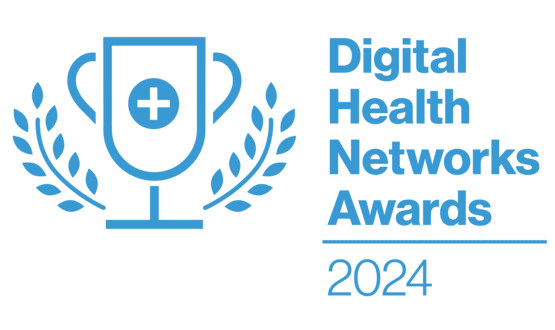EHI Awards 2014: Core beliefs
- 17 December 2014

Working out what to do with former medical directors can be a tricky proposition says Dr Paul Upton, a little wryly.
“There’s all sorts of suggestions in the literature,” adds the winner of this year’s ‘CCIO award for clinical informatics leadership’. “You put them out to grass, send them off to work for central NHS organisations, or you do something a bit more imaginative.”
Dr Upton counts himself fortunate to have been placed in the third category. In July 2013, when he ended his tenure as medical director of Royal Cornwall Hospitals NHS Trust, he became the organisation’s director of transformation.
It was a role which quickly deepened his interest and belief in the strategic value of information technology.
“I was very lucky to have a chief executive who moved me into a post which basically gave me the freedom to roam across the organisation,” explains the consultant anaesthetist, who still spends a third of his time on clinical practice.
“I very rapidly came to the conclusion that the IT agenda and building on the IT work that I’d already done was where I should be focusing my energy.”
Making e-prescribing work
The IT work he’d already done was far from insubstantial. When his organisation decided to implement e-prescribing, Dr Upton chaired the project board.
It was a helpful insight into the importance of clinical engagement in information technology projects – and underscored that clinical engagement cannot and should not be synonymous with medical engagement.
“Lots of nursing engagement, as well as pharmacy and medicine, led to us being able to roll out the e-prescribing successfully,” he explains.
“It was a really big change to make for an organisation and, with e-prescribing, you can target the relatively small number of doctors in an organisation – but unless your nurses can use the system from the administration of drugs perspective, you’re dead and buried.
“One of the challenges, which I think was rather unkindly put, was that in Cornwall we’ve got a relatively static workforce; it is known to be older.
"So there was a challenge around whether such a major IT change could be done. But actually the nurses have embraced the system particularly well.”
Re-assessing the IT way forward
His time as a medical director also saw Dr Upton heavily involved in capital planning for Royal Cornwall Hospitals; and this made him seriously question whether the trust was placing sufficient emphasis on technology.
“When I started looking at where IT was going, it became evident to me that we weren’t investing enough in it, and that it didn’t have a high enough profile within the strategic aims of the organisation,” he says.
“We also had a couple of fairly significant IT incidents which really helped put the spotlight on the underfunding, frankly, that had gone on before.”
This provided the impetus for Dr Upton to write a challenge paper that questioned the organisation’s approach to IT “both in terms of importance placed on it and also the way it was approaching procurement.”
He explains: “Historically we’ve had very much a best of breed approach and there was a question for me about whether a more integrated core to our IT would be a better approach; particularly in trying to get to the 2018 paperless objective.”
The board was convinced, and evidence of the new approach can be seen in its decision to fund a chief clinical information officer. For now, Dr Upton holds the post; but recruitment to that role and related positions are in progress.
“The E-Health Transformation programme, as we’re describing it, is not just about an IT system. It’s about changing the way the organisation works fundamentally, and that requires a transformation team.
"So we’ve appointed a new transformation manager and we’re fortunate enough that he has already done one organisation’s move to being paper heavy to paper light.”
Sorting the nuts and bolts
Before such a move is possible, Dr Upton is clear that there are multiple underlying nuts and bolts to be addressed.
“We’ve got some systems that are absolutely excellent, but my challenge is about gluing all of it together. How successfully you can glue together some of the systems, particularly on what was a creaky infrastructure?
“There were a number of really key things that needed to be done before we could even get on to the question of what system we should start to look at, because our servers were not up to speed, our wi-fi wasn’t up to speed, we’re still on Windows XP. So all of those business cases had to be put together.”
Each has now been successful, while a case for a substantial future investment in IT is going through the board and awaiting a decision from the NHS Trust Development Authority [the regulator for non-foundation trusts].
It is a clear indication of the emphasis the organisation is now placing on technology systems, one which Dr Upton is pleased the EHI Awards celebrated.
“I was delighted that the work was recognised, because we haven’t got flashy systems; but it’s about getting the fundamentals right.
“We’re not off the pace – we’re 24th in the Clinical Digital Maturity Index [the model of systems deployment run by EHI Intelligence and backed by NHS England].
“But, on the other hand, there was an awful lot of fundamental stuff that needed to be done before you could do the stuff that people get to use on a day to day basis.”
Off a burning platform
One of those day to day systems will be a new patient administration system. The organisation’s current solution is at end of life, and Dr Upton characterises it as “a burning platform.”
“It’s what gave us the impetus to question whether just replacing the PAS system was the right approach or whether we should have a more strategic look at our IT, and consider a bigger integrated pool rather than the current piecemeal approach that we’ve got.”
It is a discussion in which Dr Upton is clearly happy to be involved. “Transformation is an interesting area to move into,” he says, “and going from medical director to a CCIO-type role has enormous advantages because I’m close to the executive team, close to the board. That has given me a much better opportunity to influence.”




